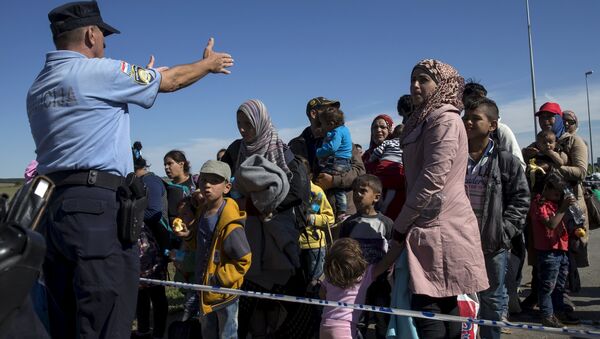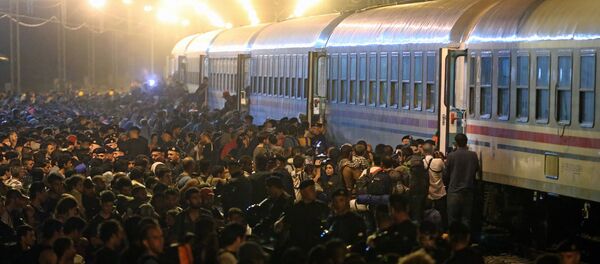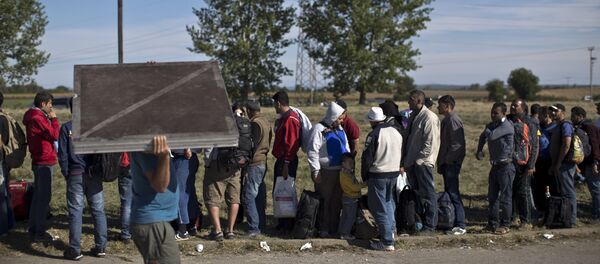"The new measures from the Croatian side do not contribute to stability in Southeastern Europe, and do not help good ties between Croatia and Serbia," Slavenko Terzic said.
He added that the situation on the border could hurt the Serbian economy, as well as Croatian business.
"This is not in the interest of either side. Serbia wants our ties to go back to normal."
Serbia hopes that the European Union will help Belgrade and Zagreb to resolve the tensions on their shared border, the Serbian ambassador told Sputnik.
"We expect the EU to influence the Croatian government to resolve the issue in a civilized manner," Slavenko Terzic said.
Terzic underlined that the whole situation on the border was an "anachronism" and was started by Croatia when it decided to close its land border crossings to traffic from neighboring Serbia in order to stem the inflow of refugees.
"Since Croatia is a member of the European Union, the EU should deal with the behavior of its members," Terzic said.
Serbian Prime Minister Aleksandar Vucic said on Wednesday that he had requested, in writing, an explanation from the EU leadership in relation to Croatia's decision to close its border with Serbia. According to Vuciс, Croatia offered no explanation for its decision, which was made unilaterally.
As of Thursday midnight, Belgrade responded by restricting access to its territory for cargo traffic from Croatia.
"The measures came in force at midnight and include an import ban on Croatian goods, but it does not mean that the citizens of Croatia cannot come to Serbia," Terzic said.
"I want to underline that Serbia does not want to escalate the situation, and we invite the European Union to urgently make a sober decision on this issue," he said.
"The Serbian government was forced to adopt response measures of the economic nature, but Croatia responded by tougher and uncivilized measures concerning Serbian citizens and vehicles. This is incompatible with the rules of the civilized world."
Thousands of migrants from conflict-torn regions in the Middle East and Africa had been crossing into Croatia on a daily basis, in search of alternative routes to Western Europe after Hungary sealed its border with Serbia.
In recent months, the European Union has faced the largest wave of refugees since World War II. Over 500,000 migrants and refugees have arrived in the bloc so far this year, according to the European Commission.




